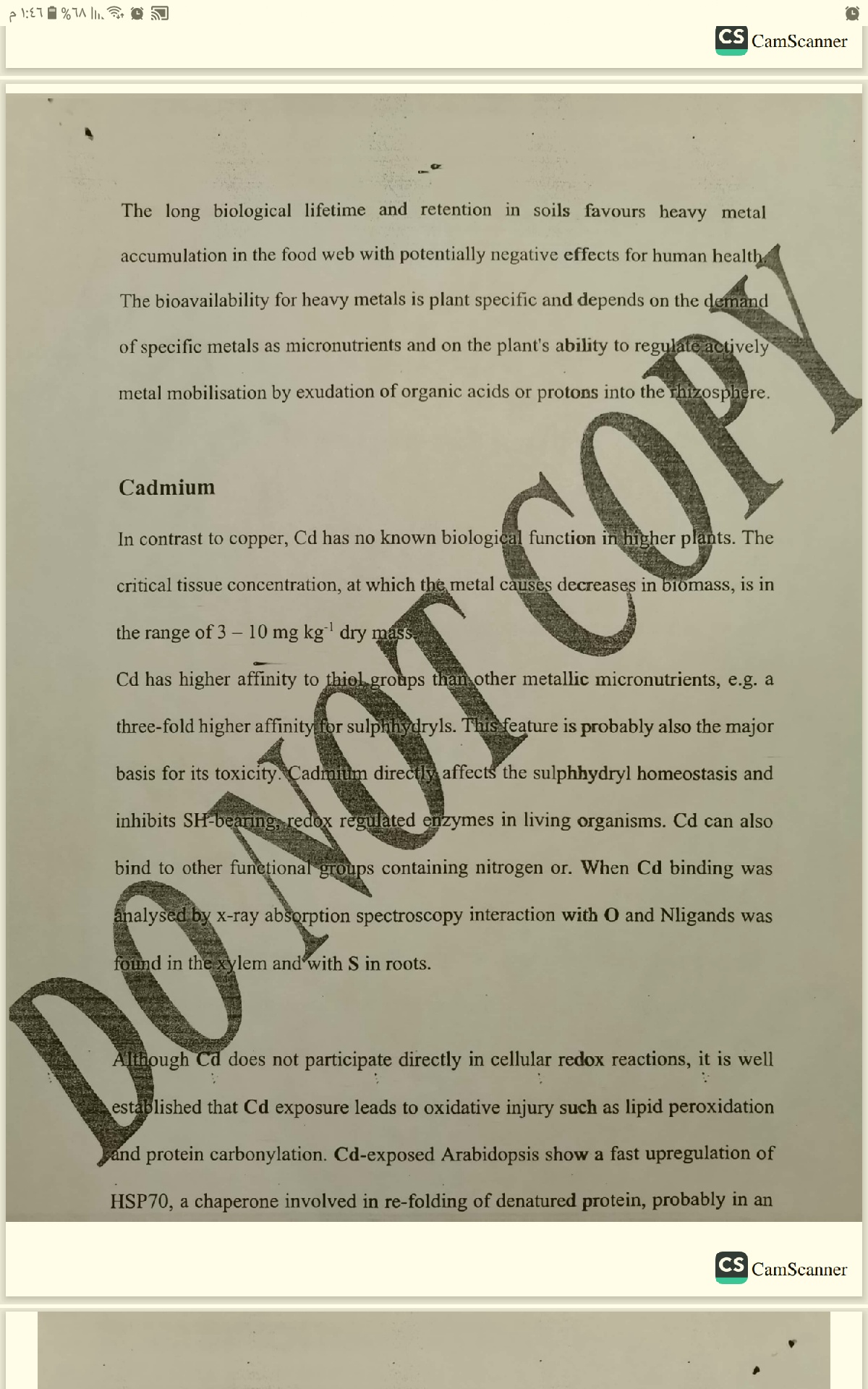
Understand the Problem
The text appears to discuss the effects of cadmium on plants, particularly its biological functions, toxicity, interaction with cellular compounds, and its impact on processes such as oxidative injury. It presents specific scientific information regarding cadmium's behavior in biological systems.
Answer
Cadmium is toxic, with no biological function in plants and causes oxidative injury.
Cadmium (Cd) has no biological function in higher plants, is toxic at 3-10 mg/kg dry mass, affects sulphydryl homeostasis, and leads to oxidative injury.
Answer for screen readers
Cadmium (Cd) has no biological function in higher plants, is toxic at 3-10 mg/kg dry mass, affects sulphydryl homeostasis, and leads to oxidative injury.
More Information
Cadmium is known for its high affinity to thiol groups, disrupting redox processes, and causing oxidative damage through lipid peroxidation and protein carbonylation.
Tips
Remember, cadmium does not serve a purpose in plant biology unlike some metals; it accumulates, causing harm.
AI-generated content may contain errors. Please verify critical information